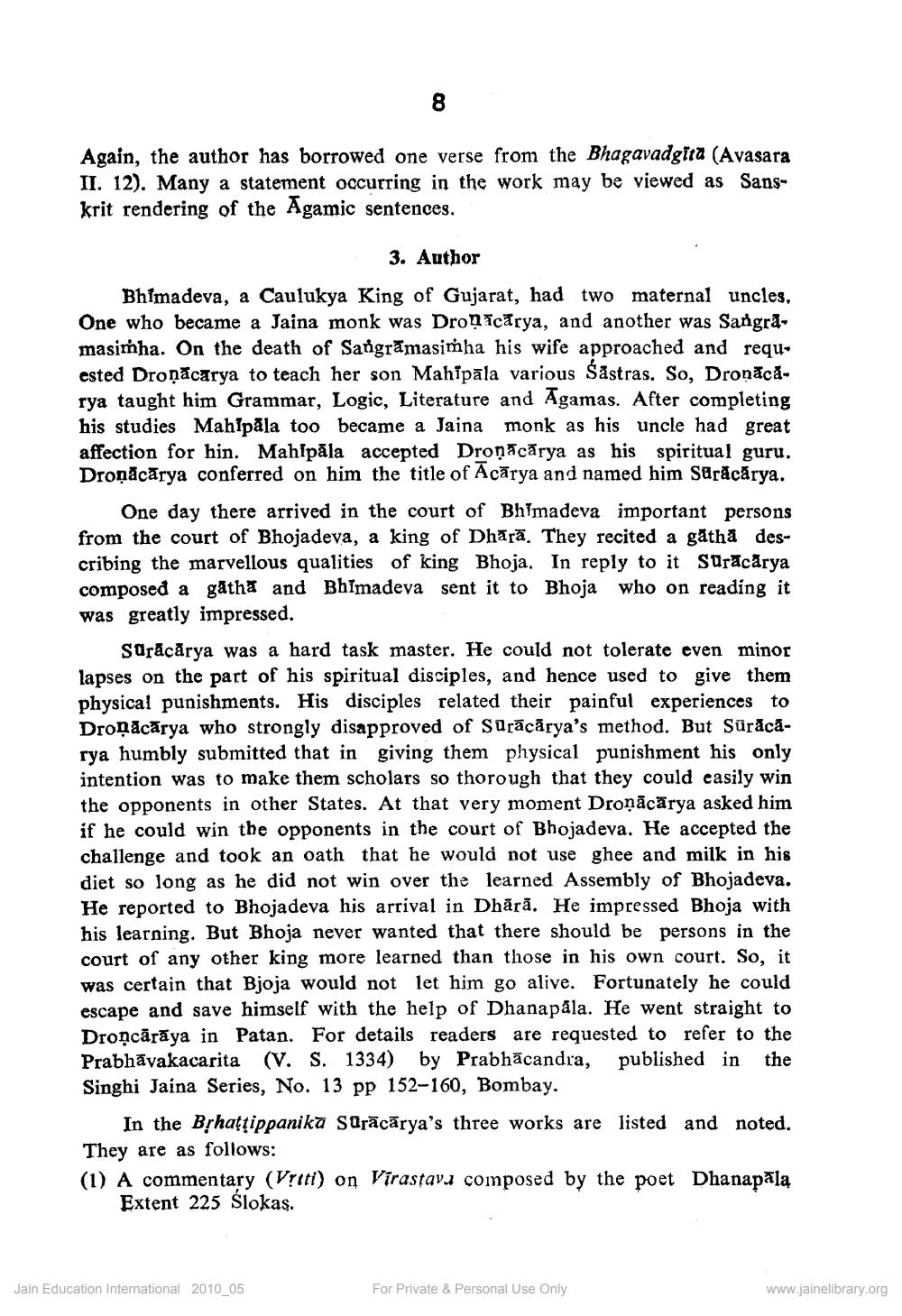________________
Again, the author has borrowed one verse from the Bhagavadgita (Avasara II. 12). Many a statement occurring in the work may be viewed as Sanskrit rendering of the Agamic sentences.
3. Author Bhimadeva, a Caulukya King of Gujarat, had two maternal uncles. One who became a Jaina monk was Droņicārya, and another was Sangramasimha. On the death of Sangrāmasimha his wife approached and requested Dronācārya to teach her son Mahīpāla various Sastras. So, Dronācarya taught him Grammar, Logic, Literature and Agamas. After completing his studies Mahlpāla too became a Jaina monk as his uncle had great affection for hin. Mahlpāla accepted Droņācārya as his spiritual guru. Dronācārya conferred on him the title of Acārya and named him Sürācārya.
One day there arrived in the court of Bhimadeva important persons from the court of Bhojadeva, a king of Dhārā. They recited a gātha describing the marvellous qualities of king Bhoja. In reply to it Sürācārya composed a gatha and Bhimadeva sent it to Bhoja who on reading it was greatly impressed.
sarăcărya was a hard task master. He could not tolerate even minor lapses on the part of his spiritual disciples, and hence used to give them physical punishments. His disciples related their painful experiences to Droņācārya who strongly disapproved of Surācārya's method. But Sürācārya humbly submitted that in giving them physical punishment his only intention was to make them scholars so thorough that they could easily win the opponents in other States. At that very moment Dronācārya asked him if he could win the opponents in the court of Bhojadeva. He accepted the challenge and took an oath that he would not use ghee and milk in his diet so long as he did not win over the learned Assembly of Bhojadeva. He reported to Bhojadeva his arrival in Dhārā. He impressed Bhoja with his learning. But Bhoja never wanted that there should be persons in the court of any other king more learned than those in his own court. So, it was certain that Bjoja would not let him go alive. Fortunately he could escape and save himself with the help of Dhanapāla. He went straight to Droncāsāya in Patan. For details readers are requested to refer to the Prabhāvakacarita (V. S. 1334) by Prabhācandra, published in the Singhi Jaina Series, No. 13 pp 152-160, Bombay.
In the Brhattippanika SQrācārya's three works are listed and noted. They are as follows: (1) A commentary (Vriti) on Virastava composed by the poet Dhanapālą
Extent 225 Slokas.
Jain Education International 2010_05
For Private & Personal Use Only
www.jainelibrary.org




